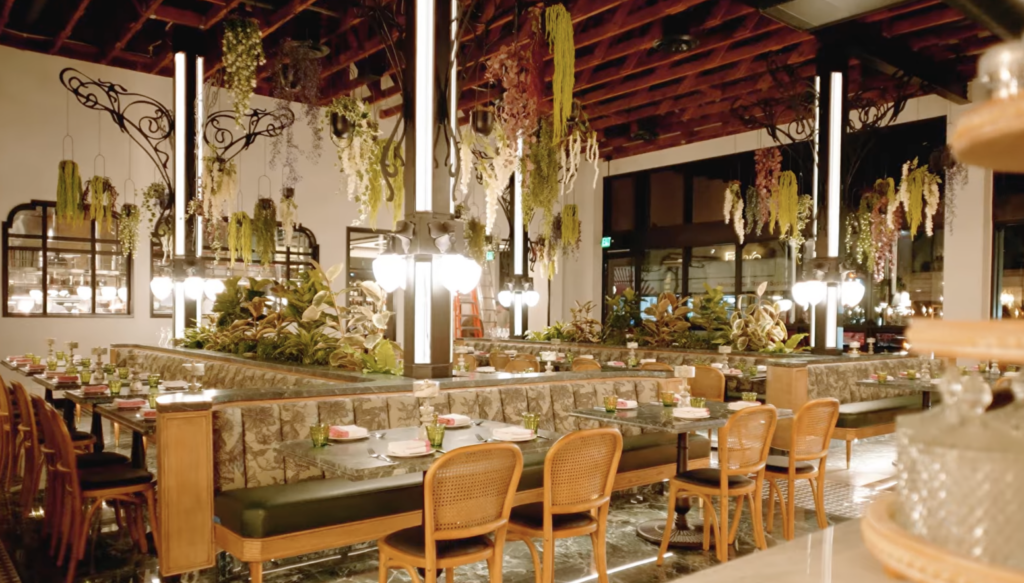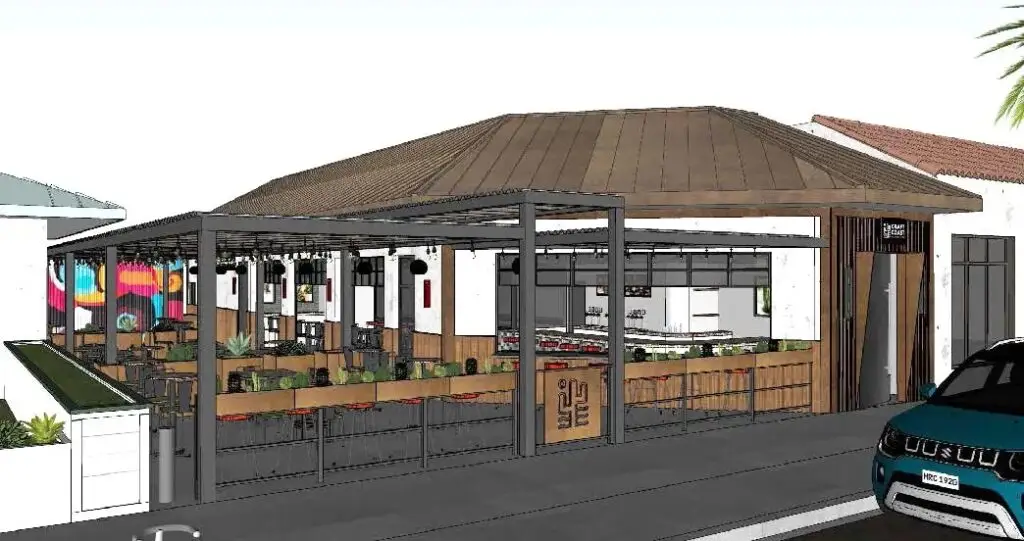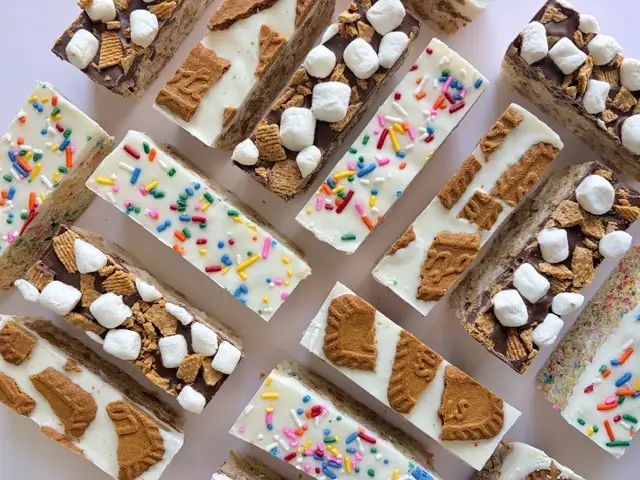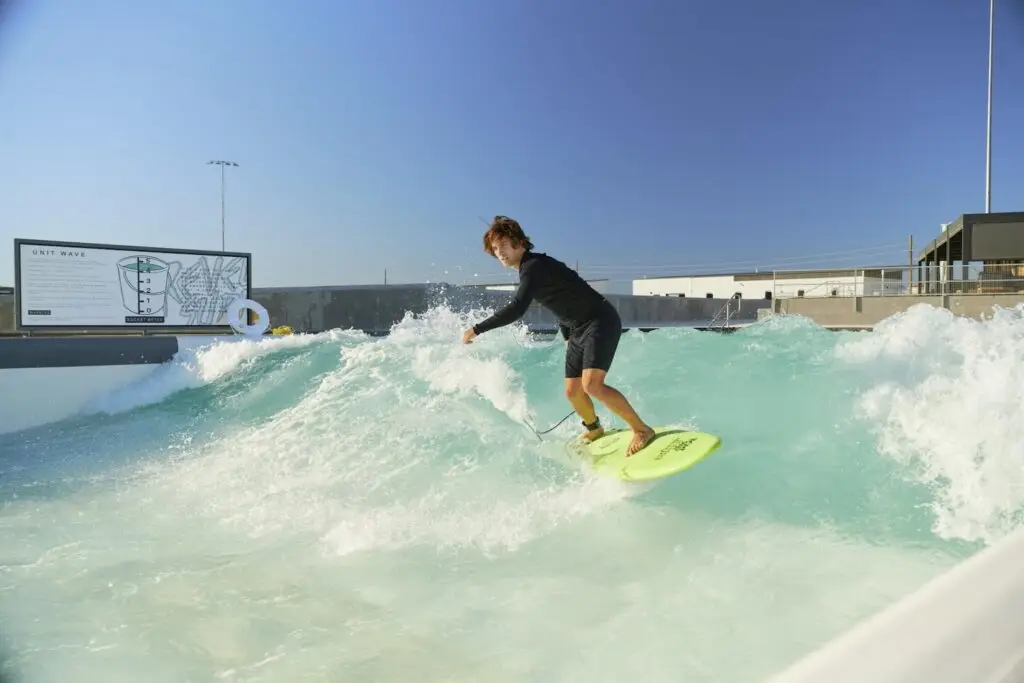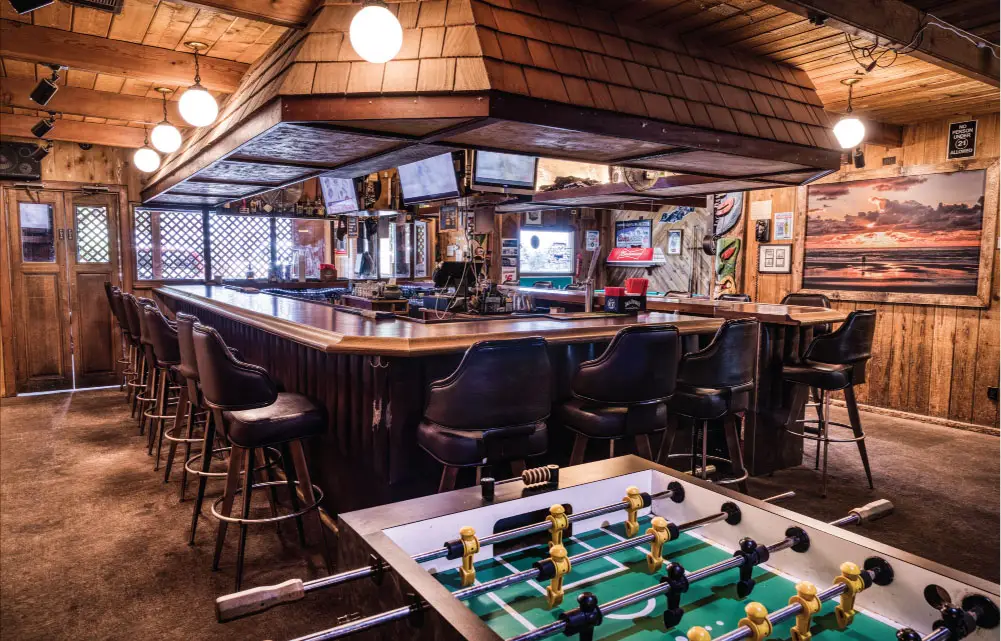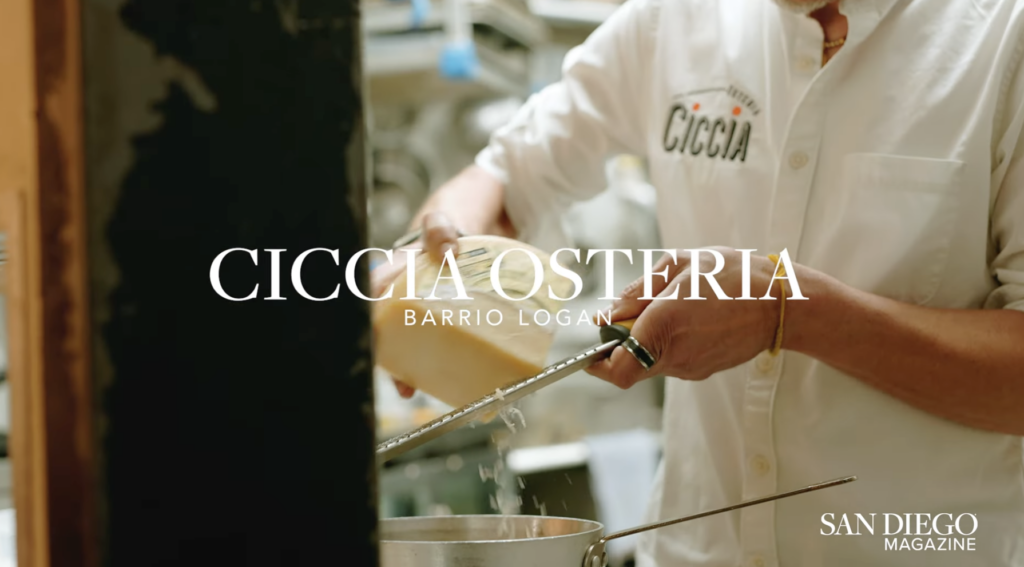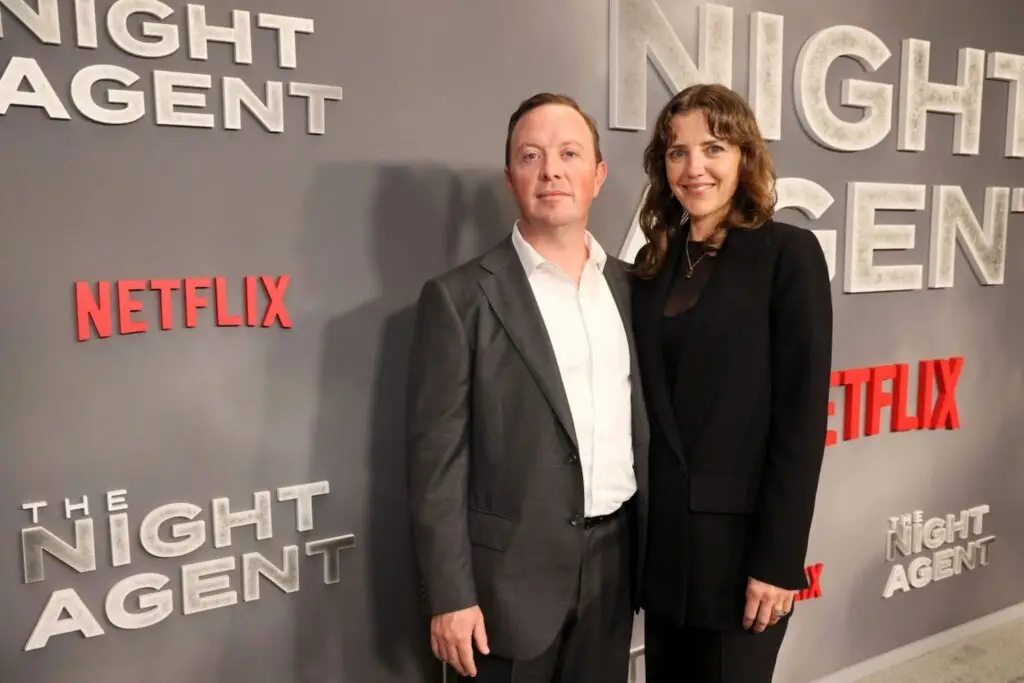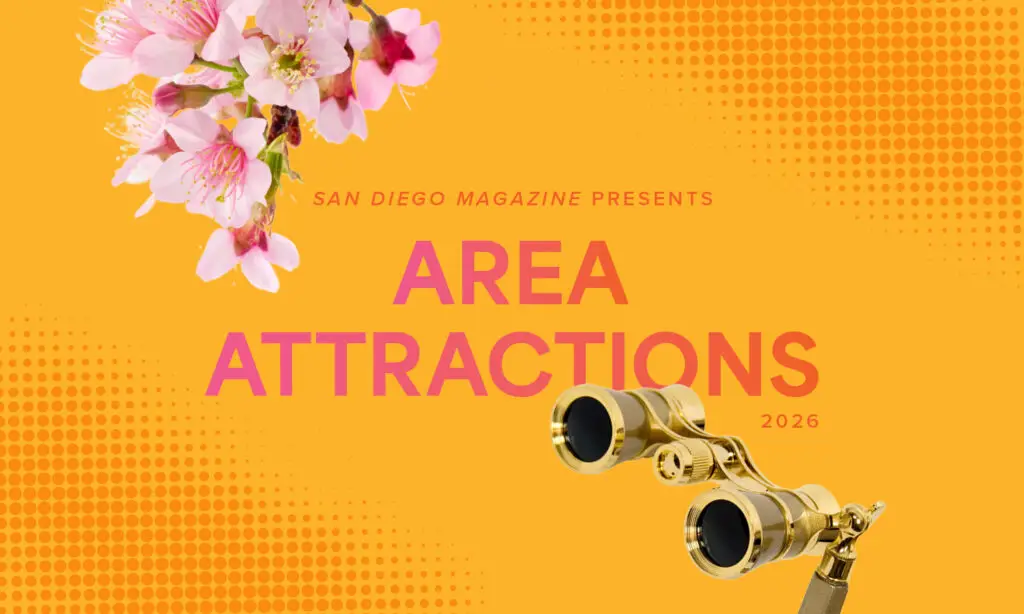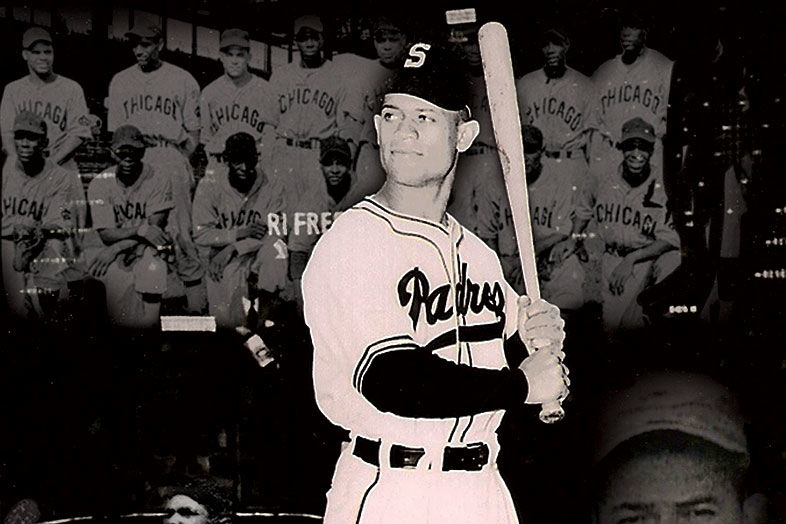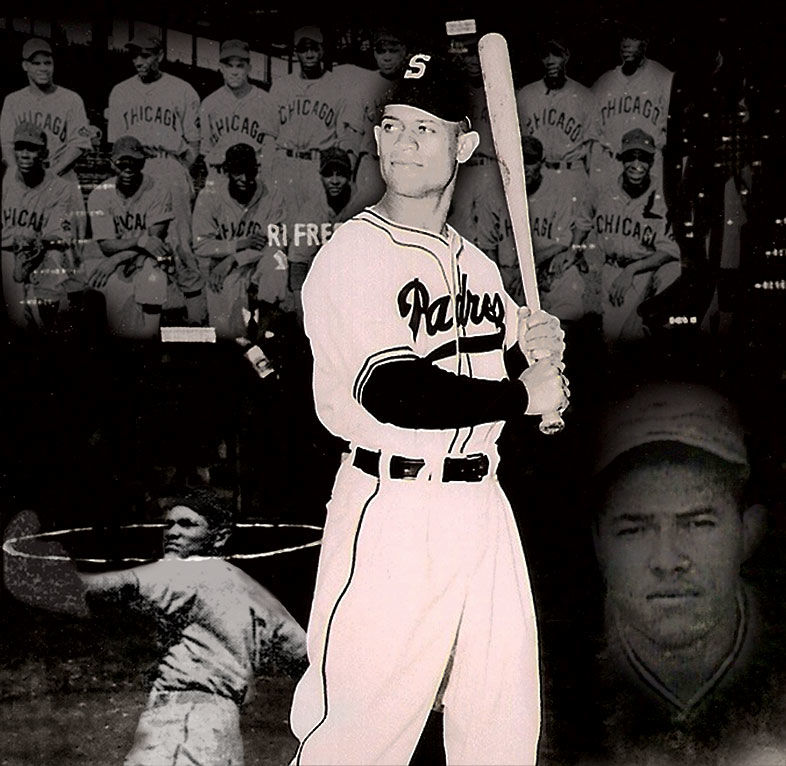
Early All-Stars
Clockwise from top: the Chicago American Giants, circa 1946; Walter McCoy; John Ritchey at bat; McCoy in action
Clockwise from top: the Chicago American Giants, circa 1946; Walter McCoy; John Ritchey at bat; McCoy in action
At the dawn of the 1947 baseball season, pitcher Walter McCoy, a San Diego native and member of the great Chicago American Giants of the Negro American League, urged his hometown pal, catcher Johnny Ritchey, to try out for the squad.
The Giants were one of the most storied franchises in the Negro Leagues, the professional circuits and teams that had been playing parallel to so-called “organized” (i.e., white) baseball for 27 years before Jackie Robinson stepped onto Ebbets Field.
But the Giants were a powerhouse at the time, and a fresh-faced Ritchey didn’t think he was up for the challenge. So McCoy gave him an ultimatum: If Ritchey didn’t make the team, McCoy would pay for his train ticket back to San Diego. The outcome? Ritchey made the team—and led the Negro Leagues in batting with a .369 average that year.
San Diego baseball historian William Swank says the San Diego black baseball scene was surprisingly robust, even though many baseball historians often gloss over it in favor of the more famous East Coast scene.
Black baseball in San Diego traces back to the late 19th century, when the Young Giants provided tough opposition to local white squads. According to Swank, in 1906, a young pitcher named Sanders broke the color barrier on the previously all-white Star Cycle team. In 1914, four local teams convened at Logan Park—now the vibrant Chicano Park in Barrio Logan—to form one of the Pacific Coast’s first black semipro leagues.
Black baseball in San Diego traces back to the late 19th century, when the Young Giants provided tough opposition to local white squads.
San Diego continued contributing to the coast’s rich black baseball tradition, culminating in 1946, when the San Diego Tigers were one of six teams to form the ambitious West Coast Negro Baseball League, the best attempt at starting a viable professional black baseball circuit in the West. While the WCNBL was founded and bankrolled by Olympic hero Jesse Owens and Harlem Globetrotters owner Abe Saperstein, it folded after only a few months of play. Ironically, one of the biggest causes of minor league WCNBL’s failure—the long-overdue integration of major league baseball—was also one of this country’s most significant societal advancements.
In spring 1948, Ritchey joined the roster of the San Diego Padres, integrating the esteemed Pacific Coast League and making him the city’s most influential player. Fans embraced their new star. “After the game a crowd of kids of mixed races gathered around Ritchey for his autograph, which shows what the fans think of him,” Eddie Burbridge wrote in the Los Angeles Sentinel that April. “He was cheered every time he went to bat.” Several other local standouts, including McCoy, were dotting minor-league rosters by the early 1950s as well.
Over time, the ranks of these trailblazers and Negro League veterans have steadily thinned out. Minnie Minoso, one of the first Cuban baseball greats to star in the states, died last March. He began his American pro career with the Padres in 1949.
Then, last November, McCoy, the city’s most enthusiastic ambassador for the memory of the Negro Leagues, died at the age of 95.
“My brothers and sisters and I were very proud of everything in his life,” says Robyn McCoy Jones, McCoy’s daughter. “His career in the Negro Leagues, his time as a ballplayer, his time in the Army, and his time in construction—all of it contributed to the great man he was.”
Historian Swank, who was friends with both McCoy and Ritchey, has been working to keep the legacy of the Negro Leagues alive. On April 11, Swank will participate in a black baseball panel timed to the KPBS airing of Ken Burns’s new two-part documentary Jackie Robinson. Swank says fondly, “You can be sure I will be talking about Johnny and Walter.”
Ritchey photo courtesy of William Swank; McCoy, Giants photos courtesy of the Negro Leagues Baseball Museum
PARTNER CONTENT
